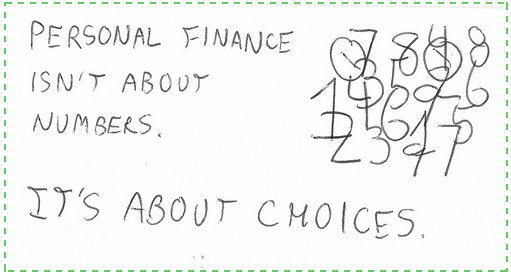Financial Friday #2
Post on: 16 Март, 2015 No Comment

Why work with a financial advisor?
By nature, I am a planner. I like agendas and shopping lists. I wouldn’t travel across the country without a map or directions as they are critical to success. You can choose to go off on another route, but you still know your destination and have a path to eventual success.
A financial advisor is like a travel agent for your finances. Her purpose is to help you map out your financial path and to assist you on the twists and turns onto your dream destination. And she tries to do it in the specific way that you’d like to travel. Whether you have common financial needs like saving for your child, or grandchild’s, education, or you have very unique and complex needs, a financial advisor can help.
One common reason to have an advisor is in planning your eventual retirement. Retirement is different than saving money for an emergency fund. Unlike the variables of an emergency fund, retirement is definite. It almost looms, a sure and certain future event, and every day it comes just a bit closer. It is the passage of time, and your solitary role in preparing for this season of life, that defines its import.
Perhaps you’re already begun saving for the future. You may have retirement accounts at past jobs. Maybe you don’t open the statements, because it’s confusing or you feel deflated by the account’s constant losses. Or, your accounts may be more carefully monitored and you may have built up a nest- egg, but you’re concerned that the money won’t last your lifetime. These are the types of common concerns that experienced advisors manage regularly.
But maybe your finances are also intertwined in guilt or feelings of embarrassment. Retirement planning together is difficult because it’s hard to understand or the subject is hideously boring to you. Perhaps you and your partner disagree about money, one partner is more aggressive than another in investing or debt, or there are complicated feelings concerning ill or aging relatives.
Advisors have spoken with others who feel similarly. As a matter of fact, a growing field of research, called behavioral economics, is featured prominently in our professional journals. Some advisors, though not professional counselors, do what they can to provide insight to clients and their families while piecing together a concrete plan for the future.
An advisor’s job is to work with you to create a clutter-free, future path to you personal financial Nirvana. No matter how much previous investing experience you have, an advisor bridges the gap between your stated goals and your plan’s practical implementation, all the while working to help you maximize your opportunities and your dollars.
How does the process work?
Advisors, by regulation, must ‘know’ you, so that mandate is our first responsibility. Since we can’t get to know you with a Vulcan mind-meld, we learn about you by asking lots of questions. Depending on your needs and present circumstances, and after learning your goals and concerns, an advisor may perform a risk analysis. She may ask questions about your financial fears and information about your family responsibilities. She may even discuss any possible upcoming change in career plans, as all this
information helps her create a plan specific to you.
Then your advisor researches the details, analyzing various instruments, ever-changing stock market conditions, along with your risk, vision and all that she knows about you, to create a few suitable options. Finance is a not a one-size-fits-all cookie cutter with only one single approach. With several ways to reach your dreams, advisors offer you options so your personal preferences are part of your ultimate, path.
And working with an advisor doesn’t end at your plan’s implementation. As a client, you can expect regular reviews and discussions to make sure any necessary adjustments can be made and that you continue to feel confident with your plan.
Who do I choose?
Financial advisors come in many flavors. Industry critics, many who are interested in, and able to manage, their own investments, are quick to say only this type or that type of advisor is best. But since there is no cookie-cutter approach to investing, like there isn’t only one style of parenting, you need to make your own decision about the type of advisor you’d like to work with.
Talk with several advisors. Check with your friends. Search online. Know your expectations. Don’t work with anyone whom you feel doesn’t have your best interests at heart.
As investment advisors, most of us make money by ongoing management fees, or commissions, which begin when you actually invest money with us. Some advisors charge flat fees for financial plans or for creating a budget. Depending on the level of detail you need in a plan, you may be content to work with an advisor who will provide more general information on those same topics to you as a client, for no additional cost.
Different advisors have different styles of managing assets and clients. Some advisors are accountants who do taxes in the spring and who also manage your investments. Some are analysts who break down the details of finance and pick individual stocks for more active trading. Do you want an independent advisor or one working for a large wire house?

What kind of relationship do you want with your advisor? Friendly and homey, or do you prefer a more professional distance? It has been said that you should work with an advisor with a ‘teachers’ heart’ and I agree. Think through whom you believe would help you feel comfortable enough to share the details of your financial dreams and goals. Then meet with a few advisors and see who brings out the best in you.
How much do you need to work with an advisor?
As mentioned before, advisors differ in their styles and that extends to who they take as clients. So the answer is, it depends. Many advisors work with clients who make monthly contribution of as little as $50 a month, while others won’t take on anyone who has less than $250,000 or more to invest.
Is it worth it to you to find out more? I think it is if you get value for your money. Your money is sitting somewhere right now paying an ongoing small fee to someone. Are they communicating with you? Do they try to know you? Do you meet or talk with them regularly and gauge the progress of your financial future and the status of your investments? Do you have time to teach yourself finance and also manage your life, work and family?
I wake up every day happy for the job I have. I understand a topic that some find mind-numbingly dull and that I find interesting and exciting. I am good and helping people take control of their financial futures. I make money from my work and I earn it. I provide great service and professional expertise to my clients.
Being the master of your money domain is freeing. You worked hard to earn it. I think you should get the most from it.
Because we help.
Marion Syversen is owner and president of Norumbega Financial and appears every Tuesday on Bangor, Maine’s CBS affiliate, in her segment, Finance is FUN! Marion is the author of Real Deal: Making Big Changes with Small Change
and is working on a new book, Real Deal: Tying the Knot without Getting Tangled. Send questions or feedback to Marion. Marion@norumbegafinancial.com or visit her website at www.NorumbegaFinancial.com Marion is accepting new clients. Only securities and advisory services offered through Wall Street Financial Group, Inc. WSFG Registered Investment Advisor Member FINRA/SIPC. Norumbega Financial and WSFG are separate entities. They are independently owned and operated. Opinions expressed are those of the author and not necessarily those of WSFG.














